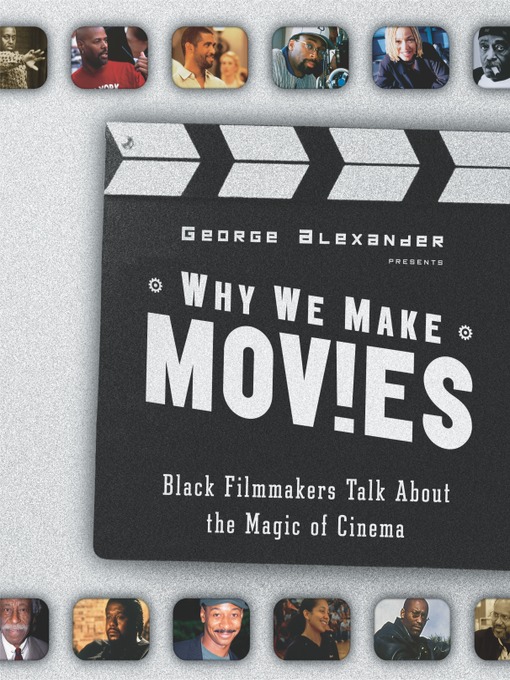
Bringing together more than thirty candid conversations with filmmakers and producers such as Spike Lee, Gordon Parks, Julie Dash, Charles Burnett, and Robert Townsend, Why We Make Movies delivers a cultural celebration with the tips of a film-school master class.
With journalist George Alexander, these revolutionary men and women discuss not only how they got their big breaks, but more importantly, they explore the creative process and what making movies means to them. Why We Make Movies also addresses the business of Hollywood and its turning tide, in a nation where African Americans comprise a sizable portion of the film-going public and go to the movies more frequently than whites. In addition, Alexander’s cast of directors and producers considers the lead roles they now play in everything from documentaries and films for television to broad-based blockbusters (in fact, the highest-grossing film in Miramax history was Scary Movie, directed by Keenen Ivory Wayans). For film buffs and aspiring filmmakers alike, Why We Make Movies puts a long-overdue spotlight on one of the most exciting and cutting-edge segments of today’s silver screen.
INTERVIEWS INCLUDE: MELVIN VAN PEEBLES • MICHAEL SCHULTZ • CHARLES BURNETT • SPIKE LEE • ROBERT TOWNSEND • FRED WILLIAMSON • ERNEST DICKERSON • KEENEN IVORY WAYANS • ANTOINE FUQUA • BILL DUKE • FORREST WHITAKER • JULIE DASH • KASI LEMMONS • GINA PRINC-BLYTHEWOOD • JOHN SINGLETON • GEORGE TILLMAN Jr. • REGINALD HUDLIN • WARRINGTON HUDLIN • MALCOLM LEE • EUZHAN PALCY • DOUG McHENRY • DEBRA MARTIN CHASE • St. CLAIR BOURNE • STANLEY NELSON • WILLIAM GREAVES • KATHE SANDLER • CAMILLE BILLOPS • HAILE GERIMA • GORDON PARKS
-
Creators
-
Publisher
-
Release date
December 18, 2007 -
Formats
-
Kindle Book
-
OverDrive Read
- ISBN: 9780307419590
-
EPUB ebook
- ISBN: 9780307419590
- File size: 2802 KB
-
-
Accessibility
-
Languages
- English
-
Reviews

Loading
Formats
- Kindle Book
- OverDrive Read
- EPUB ebook
subjects
Languages
- English
Why is availability limited?
×Availability can change throughout the month based on the library's budget. You can still place a hold on the title, and your hold will be automatically filled as soon as the title is available again.
The Kindle Book format for this title is not supported on:
×Read-along ebook
×The OverDrive Read format of this ebook has professional narration that plays while you read in your browser. Learn more here.